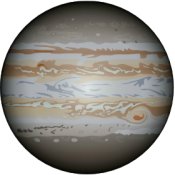We’ve been contacted by Trev G3OAD to see if we can find someone in Essex or London who might be able to help with setting up a radio telescope in North London. Here’s his message – can you help, or suggest someone who can?
Can you help?

This is G3OAD, Trev, and I am looking to help a teacher at an Enfield School in North London set up a radio (and an optical) telescope for students very keen on astronomy and cosmology.
I have been trying to identify who might be willing to let students see an amateur radio HF station well-enough equipped to receive Alfven waves from Jupiter on 15, 12 or 10 metres, and hear the signals. I only have my cassette tapes of the noise which is nothing like hearing the real thing.
Can you let me know if there’s anyone in the Essex area who might be willing to show their rig and monitor those bands for Jupiter noise.
If they are fired up by such a visit, the teacher will raise a small budget to buy a 10m 4 element yagi. I am loaning a tower, coax feeder and my FT707.
The teacher is a Canadian who is very enthusiastic to make this a success but has no knowledge of radio astronomy.
I’m told that it may be possible to hear Pulsars as well, in the VHF spectrum somewhere, but I have not yet started to investigate this.
If you can help, or point me in the right direction, please email me at: trevor.haydu-jones <at> amec.com
I’d be most appreciative of any help or advice you could give.
73, Trev G3OAD
Can you help?
Please contact Trev direct if you can help, or add a comment below for Trev to pick up on. Let’s see if the Essex Ham community can point Trev in the right direction (i.e. Jupiter!)


Pete one of the lock clubs had a trake about telescope,I think you no how I’am traking about if no joy there then there was a club in Braintree about telescope, I hop that help.
Trev, I saw an article on net, naybe DX-Zone or Ham universe.But all u need is a dipole with 2 legs 22 ft(edz), mount it around 10` agl as we want radiation pattern up, and an rx type ATU. I have hered them myself on my OCF.
but google amateur radio astronomy lots of stuff,VLF Listens to our own Sun with some interesting reserch being don by profesional and Amateur alike.ps this dipole will work 7mhz to 28mhz with open wire feeder and a tuner.
jon
When I was getting my BSEE I successfully received Jupiter Alfven waves with a relatively simple setup. Used an old Collins-Rockwell receiver and a linear 2 dipole array wire antenna 1/4-wave above ground. I waited in the 20 MHz WWV guard band (low-side). I recorded the results on an old chart recorder.
I would love to help. Please email if interested.
Hi Trev
Have you spoken to the BAA (British Astronomical Association
) Radio Astronomy Group – To Paul Hyde G4CSD, Coordinator, Radio Astronomy Group –
BAA) http://www.britastro.org/section_front/24 –
The biggest issue is the QRM from local noise sources :-( –
I Have given demostrations detecting meteors using the Graves radar (143.050) at public outreach events with my astronomy club WOLAS – How ever I am still a new to Radio Astronomy.
Paul gave a talk to the Radio Society of Harrow back September 2014 (see below) / Also to my astronomy society WOLAS earlier in the year (2014) –
David g0cag
”
Practical Radio Astronomy for Amateurs
Paul Hyde G4CSD, Coordinator, Radio Astronomy Group (BAA)
You may imagine that radio astronomy needs large parabolic dish antennas and complex electronic equipment; Paul will introduce you to applications requiring relatively modest amounts of hardware suitable for domestic environments, allowing you to make observations on solar activity, Jupiter emissions and meteor showers; more ambitious systems can reveal the structure of the Milky Way or detect radio galaxies many millions of light years away. “
Hi Trev
I have tried various ways to receive Jupiter emissions. HF Receiver with AGC switched off, Ten-Tec 1056 direct conversion receiver kit, modified for 20.1Mhz, but the best results vs cost is the NASA Radio Jove project, receiver kit and single/twin dipole arrangement in conjunction with the Radio-SkyPipe and Radio-Jupiter Pro software. Full details at http://radiojove.gsfc.nasa.gov/. Good luck, Alan G0TUD
Are you still looking for help with this project
Steve